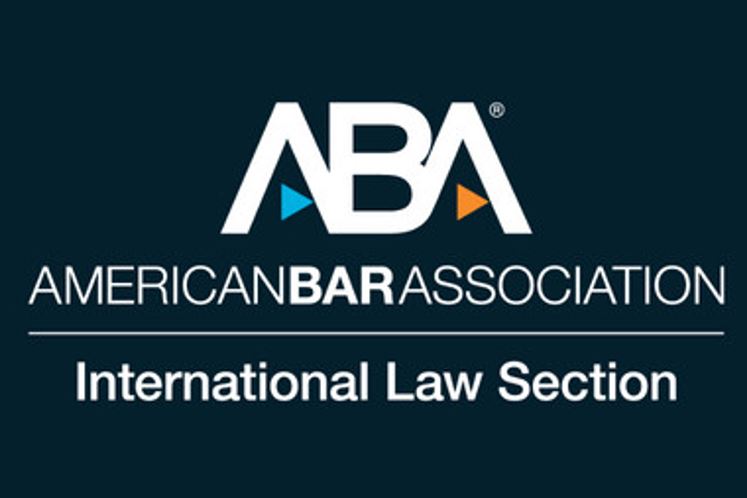I. Can allegations of corruption serve as a bar to jurisdiction of arbitral tribunals or admissibility of claims?
Under Austrian law, allegations of corruption do not automatically invalidate arbitration agreements. However, if corruption directly affects the arbitration agreement itself — e.g. if the agreement is used for criminal purposes such as money laundering — the agreement may be declared void for illegality or immorality under Para 879 Austrian Code of Civil Procedure (ABGB or ACCP).
Under the competence-competence principle (Para 592(1) Austrian Code of Civil Proce-dure), the arbitral tribunal determines the existence of jurisdiction on its own. Consequently, a declaratory judgment on the existence or validity of an arbitration agreement is inadmissible both before and during arbitral proceedings. This also follows from Para 578 ACCP, according to which state courts may only take action to the extent expressly assigned to them (scholars voiced opinions that prior to constitution of the arbitral tribunal state courts should have the competence to declare arbitration agreements null and void in extraordinary matters). Furthermore, Para 578 also prohibits actions for a declaratory judgment regarding the (lack of) jurisdiction of an arbitral tribunal.
An allegation that an arbitration agreement would be null and void due to corruption does not change the objective arbitrability of the subject matter. In this context, preliminary criminal issues can also be assessed incidentally by the arbitral tribunal.
Austrian law recognizes the doctrine of separability (Para 581(1) ACCP). Thus, an arbitration agreement remains valid even if the main contract is nullified due to existence of corruption. Thus, the arbitral tribunal would retain jurisdiction to hear the dispute.
II. Can allegations of corruption affect the validity of an arbitral award?
Such an arbitral award, by which a contract obtained through corruption is deemed to be valid, may be annulled on the grounds of a violation of substantive ordre public (Para 611(2)(8) ACCP).
III. In annulment or enforcement proceedings, can the court review the award and the merits to determine whether corruption or related offences affect the underlying dispute?
The prohibition of révision au fond limits annulment proceedings under Para 611 (2)(8) ACCP to reviewing awards only for violations of substantive public policy. The court may, however, not examine whether the arbitral tribunal correctly resolved the factual and legal issues raised in the arbitration proceedings. The Austrian Supreme Court has, however, considered the possibility of a review in the event of arbitrary application of the law by the arbitral tribunal. For example, a completely unacceptable interpretation that affected the arbitral tribunal’s decision could be challenged as a violation of substantive ordre public.
State courts are, in any event, not bound by the arbitral tribunal’s factual findings.
Similarly, in enforcement proceedings, again following the prohibition of révision au fond, the examination of the grounds for refusal must not result in a review of the arbitral award. It is only to be examined whether the assumptions of the arbitral tribunal in its award constitute a violation of the public policy.
IV. Can courts review corruption allegations which have not been raised in the arbitration?
Courts are not bound by the arbitral tribunal’s findings or the arguments presented in arbitration proceedings. In addition, the right to invoke a violation of substantive ordre public cannot be waived neither in advance nor retrospectively.
V. Do courts defer to the arbitral tribunal’s finding that no corruption acts were committed?
Austrian courts adhere to the principle of limited judicial review in line with the prohibition of révision au fond. This means that they do not typically conduct a full factual review of arbitral awards. However, as stated above, when a violation of substantive ordre public is alleged, courts are not bound by the arbitral tribunal’s findings. Thus, Austrian courts do not automatically defer to the arbitral tribunal rejecting allegations of corruption.
VI. Is there a standard of proof used by arbitrators and reviewing courts to assess the existence of corruption?
The question of whether the standard of proof in international arbitration is governed by substantive or procedural law remains debated. There is much to suggest that in Austria the standard of proof is also the subject of the applicable arbitration law. According to this view, the arbitral tribunal is consequently not bound by provisions on the judicial standard of proof that may arise from the applicable substantive law based on the parties’ agreement. This would contradict the mandatory free consideration of evidence. In practice, the standard phrase whether the realization of the facts is more likely than that of the alternative facts is often used.
While no explicit unique evidentiary standard tailored to corruption cases exists under Austrian arbitration law and subsequent state proceedings, it is being pointed out by scholars that in cases involving criminal conduct, such as fraud or bribery, arbitral tribunals occasionally require “clear and convincing evidence” or an increased level of conviction, i.e. “beyond reasonable doubt”.
VII. Which method do arbitrators and reviewing courts employ to establish evidence of corruption?
Austrian arbitration law does not, strictly speaking, provide for an obligation to investigate the facts by the arbitral tribunal (however, a gross violation can constitute grounds for setting aside the arbitral award due to a violation of procedural ordre public). It is within the discretion of the arbitral tribunal to decide on the admissibility of any type of evidence.
Pursuant to Para 602 ACCP, the arbitral tribunal or a party with the tribunal’s consent may apply to the competent state court for the performance of judicial acts that the arbitral tribunal (which has no coercive power) is not authorized to perform.
Given that the facts surrounding corruption are often deeply concealed, arbitrators (and reviewing courts) generally use circumstantial evidence to establish whether corruption has occurred. Evidence may include mismatches between fees and services, opaque structures, the use of aliases, inexplicable payments, or missing documentation. In addition, not providing explanations for such circumstantial evidence might lead arbitrators to infer the existence of corruption.
However, it is noteworthy to state that arbitrators do not lightly assume the existence of corruption and are mindful of the overriding importance of party autonomy in arbitration proceedings.
VIII. Are arbitrators seated in your jurisdiction bound by criminal proceedings on issues that could impact the underlying arbitration dispute?
A final and binding criminal conviction has a binding effect in civil proceedings. A person who has been convicted in a criminal court cannot subsequently claim in a civil proceeding that she / he had not committed the offense. This binding effect is recognized in arbitration by both case law and scholars. Disregarding this binding effect could justify the annulment of an arbitral award for violating procedural public policy (Para 611 (2)(5) ACCP).
However, there is no such binding effect with regard to acquittal or other sorts of termination of criminal proceedings.
IX. To what extent do they rely on or defer to findings from parallel criminal investigations?
In light of the above, arbitration tribunals will have to assess carefully, unless otherwise agreed by the parties, whether to temporarily stay the arbitral proceedings. A stay may facilitate fact-finding, as criminal investigations often prove more effective in uncovering corruption than arbitral proceedings. However, white-collar crime proceedings in Austria can take many years and might unreasonably prolong the arbitration proceedings.
The arbitral tribunal can, in any event, freely assess evidence submitted from the criminal file. It does, however, not have any right to inspect the file. The Austrian Supreme Court has rejected the allegation of a violation of ordre public, alleging a lack of evidence for rendering the arbitral award, because the arbitral tribunal has relied on the final criminal conviction of the claimant.
X. Are remedies available when an arbitral tribunal rules that there is no evidence of corruption but subsequently a criminal ruling decides otherwise?
Para 611 (2)(6) ACCP provides for the possibility to have an arbitral award annulled in case of existence of certain criminal conduct: falsification of a decision-relevant document; false testimony by a witness, expert or opposing party, insofar as it was relevant to the decision; the decision having been obtained by means of one of the crimes explicitly listed (deception, embezzlement, fraud, forgery of documents, forgery of specially protected documents or public certification marks, document suppression). In such cases, the deadline for initiating annulment proceedings is four weeks from the judgment’s delivery or, if later, from the conviction having become final and binding (usually, the deadline for initiating annulment proceedings is three months from receipt of the arbitral award).
Apart therefrom, an arbitral award may be set aside or declared unenforceable if corruption proven in criminal proceedings resulted in the recognition or enforcement of such arbitral award contradicting ordre public.



